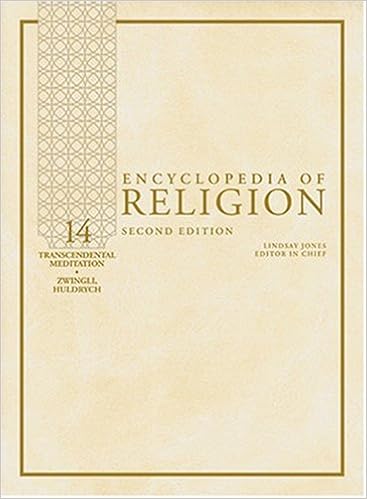

 Witchcraft today by Gerald Gardner
Witchcraft today by Gerald Gardner Nature religion today : paganism in the modern world by Joanne Pearson, et al. (eds.)
Nature religion today : paganism in the modern world by Joanne Pearson, et al. (eds.) Drawing down the moon : witches, druids, goddess-worshippers, and other pagans in America today by Margot Adler
Drawing down the moon : witches, druids, goddess-worshippers, and other pagans in America today by Margot Adler Mastering witchcraft : a practical guide for witches, warlocks and covens by Paul Huson
Mastering witchcraft : a practical guide for witches, warlocks and covens by Paul Huson The witch-cult in Western Europe by Margaret Murray
The witch-cult in Western Europe by Margaret Murray The pomegranate by Chas F. Clifton (ed.)
The pomegranate by Chas F. Clifton (ed.) A community of witches : contemporary neo-paganism and witchcraft in the United States by Helen A. Berger
A community of witches : contemporary neo-paganism and witchcraft in the United States by Helen A. Berger Pagan family values : childhood and the religious imagination in contemporary American paganism by S. Zohreh Kermani
Pagan family values : childhood and the religious imagination in contemporary American paganism by S. Zohreh Kermani Pagan theology : paganism as a world religion by Michael York
Pagan theology : paganism as a world religion by Michael York Introduction to pagan studies by Barbara Jane Davy
Introduction to pagan studies by Barbara Jane Davy Modern paganism in world cultures : comparative perspectives by Michael F. Strmiska (ed.)
Modern paganism in world cultures : comparative perspectives by Michael F. Strmiska (ed.) Crafting the art of magic : a history of modern witchcraft, 1939-1964 by Aidan A. Kelly
Crafting the art of magic : a history of modern witchcraft, 1939-1964 by Aidan A. Kelly Her hidden children : the rise of Wicca and paganism in America by Chas S. Clifton
Her hidden children : the rise of Wicca and paganism in America by Chas S. Clifton The triumph of the moon : a history of modern pagan witchcraft by Ronald Hutton
The triumph of the moon : a history of modern pagan witchcraft by Ronald Hutton The pagan religions of the ancient British Isles : their nature and legacy by Ronald Hutton
The pagan religions of the ancient British Isles : their nature and legacy by Ronald Hutton Handbook of contemporary paganism by Murphy Pizza, et al. (eds.)
Handbook of contemporary paganism by Murphy Pizza, et al. (eds.) Re-riting woman : Dianic Wicca and the feminine divine by Kristy S. Coleman
The first in-depth ethnographic study of Dianic Wicca. Its subject, Circle of Aradia, is a branch of the religion based in the Los Angeles area. This religion-of, by, and for women-conceives the Divine as exclusively female, and has infused feminism into Wicca worldwide. Kristy S. Coleman combines ethnography with theory to present a full account of what Dianic Witches' lived practice looks like and what it means. The theorist of focus, Luce Irigaray, asserts that women must reclaim their own space and imagine the Divine as female to achieve full emancipation. Moreover, Irigaray's critical analysis of Western culture creates a subtext that clarifies what is at stake in this practice. Thick description of seasonal rituals dispels fears and stereotypes about Wicca, and offers readers a comforting familiarity and shared healing. Coleman employs ritual theory to suggest why and how these rites wield such meaning-altering possibilities. Practitioners' statements that describe a shift in worldview and self-conception elicit Coleman's proposal that Dianic rituals re(w)rite the valuation and meaning of woman. Dianic women's stories reveal both the transformative power of the tradition's practice and the organization's challenges related to power politics.
Re-riting woman : Dianic Wicca and the feminine divine by Kristy S. Coleman
The first in-depth ethnographic study of Dianic Wicca. Its subject, Circle of Aradia, is a branch of the religion based in the Los Angeles area. This religion-of, by, and for women-conceives the Divine as exclusively female, and has infused feminism into Wicca worldwide. Kristy S. Coleman combines ethnography with theory to present a full account of what Dianic Witches' lived practice looks like and what it means. The theorist of focus, Luce Irigaray, asserts that women must reclaim their own space and imagine the Divine as female to achieve full emancipation. Moreover, Irigaray's critical analysis of Western culture creates a subtext that clarifies what is at stake in this practice. Thick description of seasonal rituals dispels fears and stereotypes about Wicca, and offers readers a comforting familiarity and shared healing. Coleman employs ritual theory to suggest why and how these rites wield such meaning-altering possibilities. Practitioners' statements that describe a shift in worldview and self-conception elicit Coleman's proposal that Dianic rituals re(w)rite the valuation and meaning of woman. Dianic women's stories reveal both the transformative power of the tradition's practice and the organization's challenges related to power politics.
 Hidden circles in the web : feminist Wicca, occult knowledge, and process thought by Constance Wise
Hidden circles in the web : feminist Wicca, occult knowledge, and process thought by Constance Wise Starhawk collection by Starhawk
Starhawk collection by Starhawk Encyclopedia of religion by Jones, Lindsay (ed.)
Encyclopedia of religion by Jones, Lindsay (ed.) Magic, witchcraft, and paganism in America : a bibliography by J. Gordon Melton (ed.)
Magic, witchcraft, and paganism in America : a bibliography by J. Gordon Melton (ed.) Witchcraft today : an encyclopedia of Wiccan and Neopagan traditions by James R. Lewis (ed.)
Witchcraft today : an encyclopedia of Wiccan and Neopagan traditions by James R. Lewis (ed.)